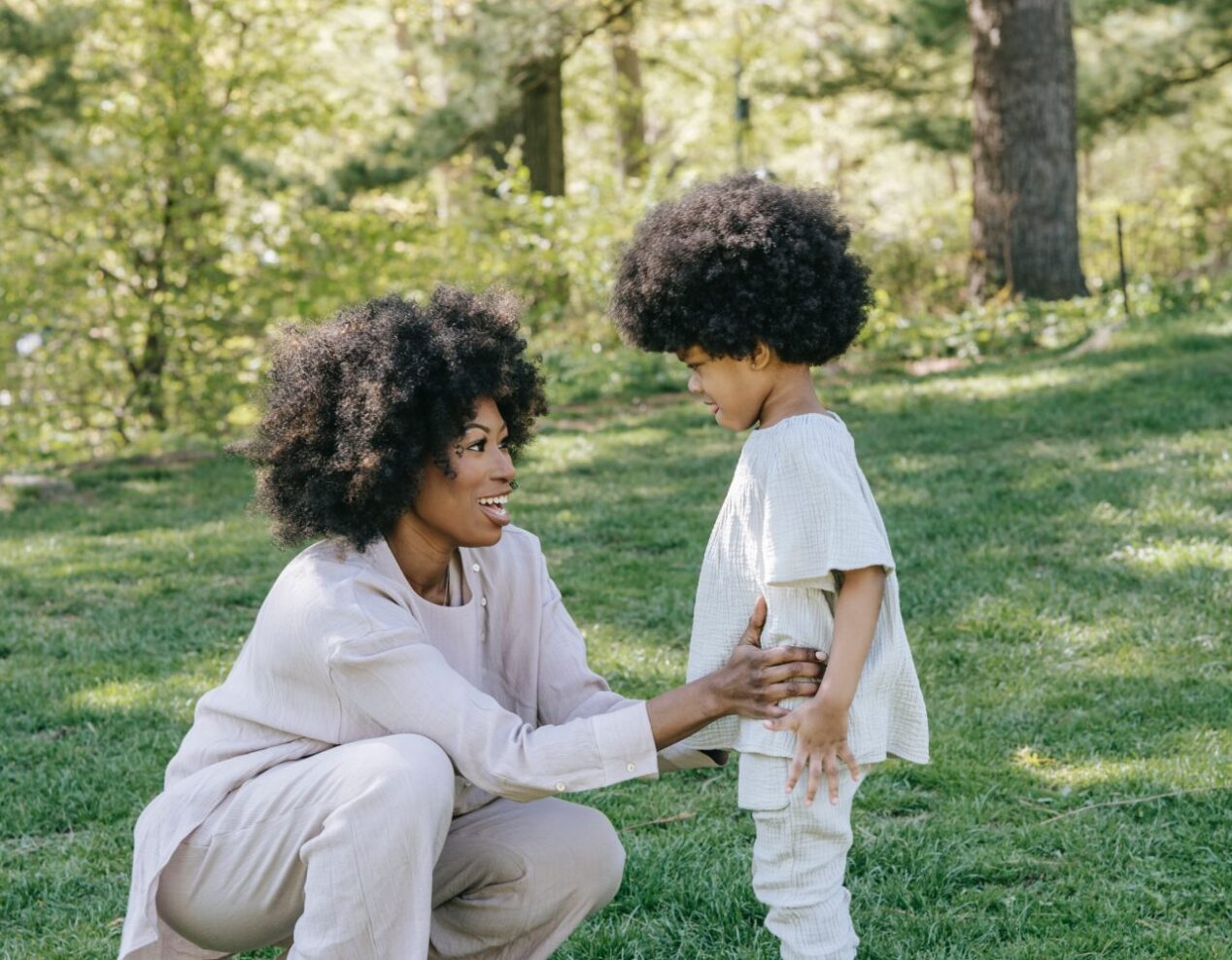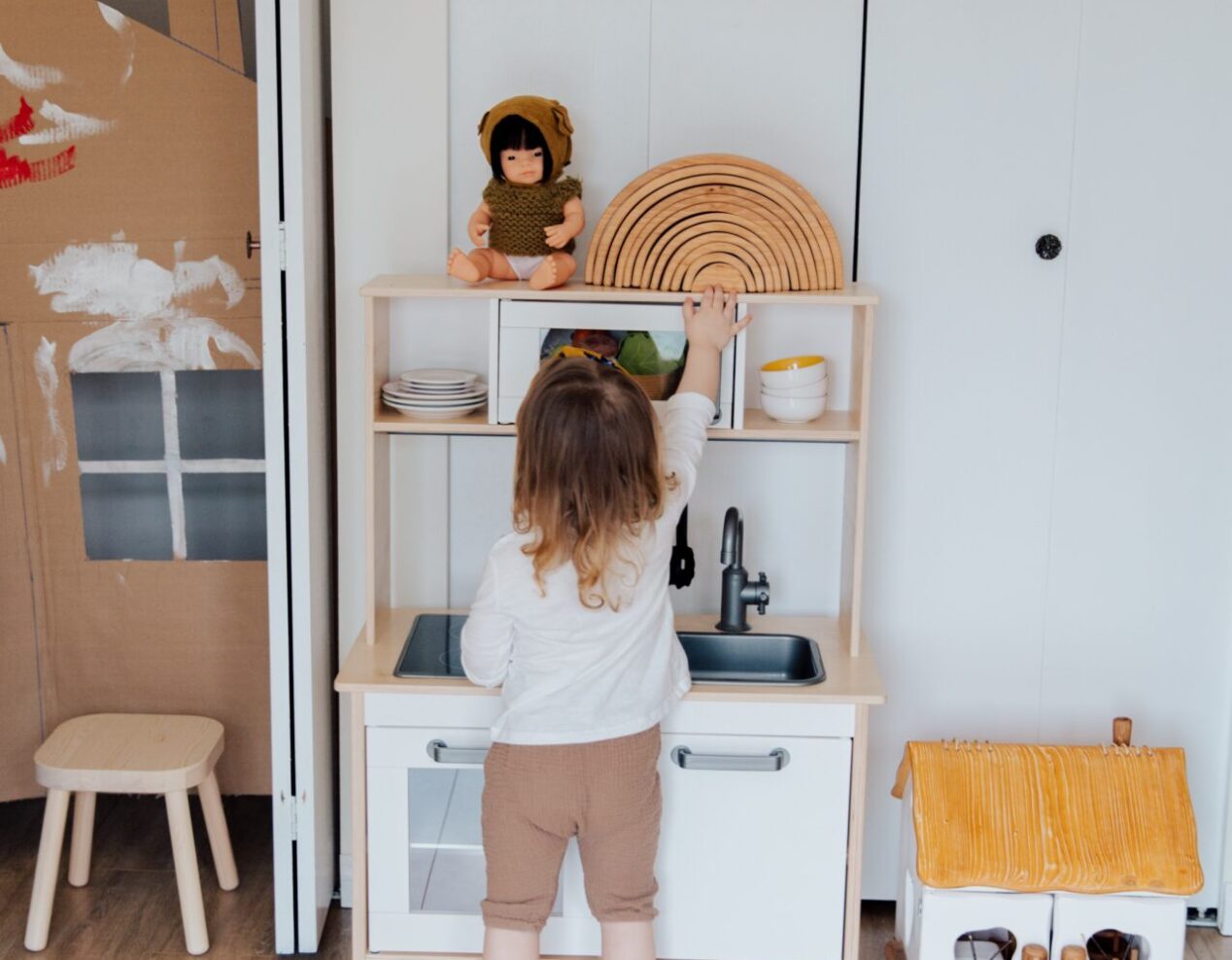Owning Your Body

Of course, you want your child to understand the importance of their own physical boundaries – and this is precisely why it is so good for your child to know early on what their limits are. But do they really need to know the malicious things a person might do to someone else? For young children, this is clearly inappropriate.
So, how can you make the lesson clear, without having to outline the bad scenarios?
Howtotalk’s Top Tips
1. Listen to Your Body
Explain to your kids that they should always listen to their bodies. This can be done at a super young age and in normal situations. For example, do they want to put on their socks on their own? Or comb their hair? Or wipe their bum? Let them!
Help them build confidence to know that their feelings and opinions matter. By
Help them build confidence to know that their feelings and opinions matter. By doing this, you’re teaching them to also say “no” if they don’t want something or feel uncomfortable about something – including that no one should touch them if they don’t want that.
2. Stop Means Stop
Be consistent with this and always listen to your child’s signals. That also applies to “Stop it!” while tickling. You can explain to your child, “I heard you say stop. As soon as you said it, I stopped tickling you.” This is how your child builds confidence in the power of their language: my no means no and when I say stop it means stop, even with grown-ups.
And don’t forget to turn it around. Is your child playing too rough or wild with you? Ensure your boundaries are also respected. You can say something like, “Stop, I think that’s too rough. If someone says stop, we let go and stop immediately.”
3. No Obligatory Hugs
Does your child not want to give Grandma a hug when saying goodbye? Respect their choice. Even in the name of love, gentle coercion to hug or touch when they don’t want to can be really confusing. Your child may think something like, Mom said no one is allowed to touch me if I don’t want them to. But it makes Grandma happy, so I guess I have to do it even if I don’t want to. Confusing right?
Maybe this is also a painful moment for Grandma too. As hard as it is though, be consistent. Explain to her why this lesson is important and it starts at this young age with their physical limits and boundaries.
To prevent strong resistance from your child, try giving them a choice. For example, instead of saying, “Ok, we’re leaving! Go give Grandma a hug.” You can try saying something like, “Ok, we’re leaving! Do you want to say goodbye to Grandma with a hug, air kiss, or wave?”
4. Don’t Nit-Pick
This one might come as a surprise – but other nit-picking touches can be seen as a violation of personal space by a child. It is so easy to run a comb through their hair to get them ready for school or tuck in their shirt hanging outside their pants – but what if you just let it be? Or asked them to do it themselves?
Even though it’s a 100% act of love coming from you, getting straightened, polished, and corrected every half hour can really feel like an invasion of physical privacy.
Interested to know more?
Download the Howtotalk app to learn more about setting boundaries and limits that are good for both you and your child. This is a practice and all about being aware and present in the moment – so you can build a stronger relationship with them and set them up to be confident individuals. Happy parenting!



